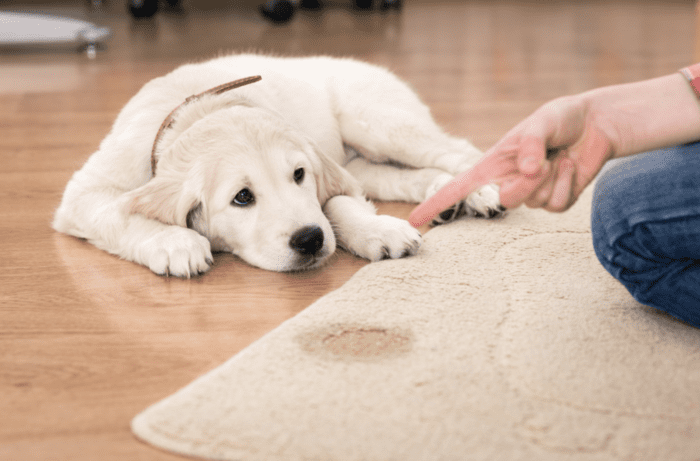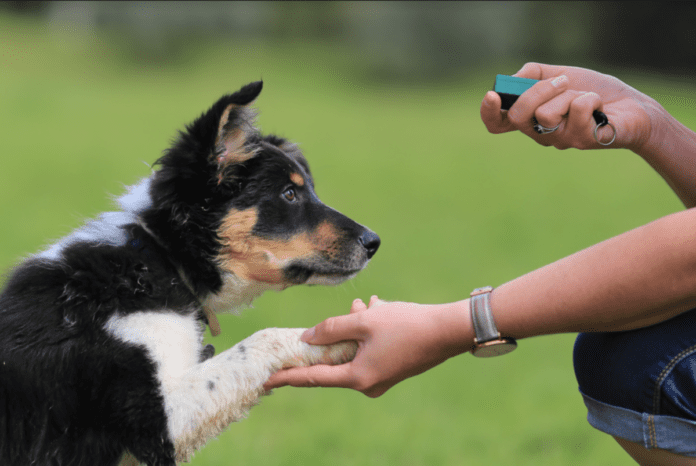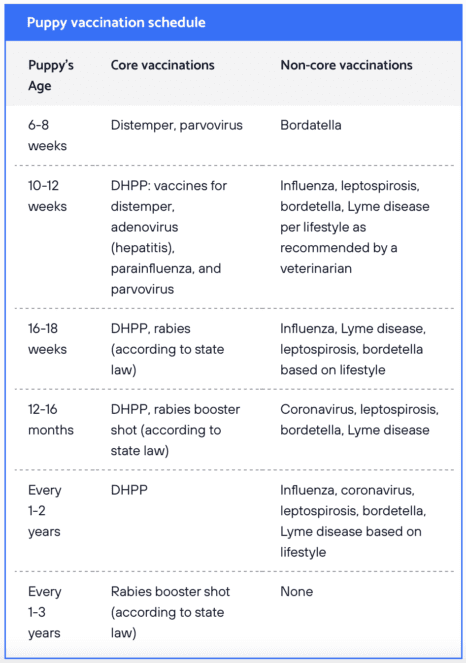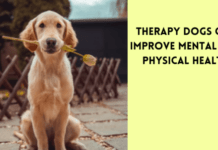Last Updated on September 25, 2023 by Dogs Vets
A Puppy Training Guide For Every Age
No one can resist the doggy charm unless you’re allergic to them. If you’re inspired by your passion for puppy training and considering starting your own dog training business in the Sunshine State, it’s essential to learn How to Start an LLC in Florida to ensure you’re properly set up and compliant with state regulations.
With their goofy behavior and sweet expressions, those are only a couple of selling points that could reel in animal lovers everywhere. Although, just like any pet, it takes time for them to be acquainted with many things.
Considering they’re animals, someone’s supposed to be teaching puppies to be domesticated properly.
Otherwise, their cuteness factor might go down with every chewed-up piece of furniture or misbehavior they do.

Normally, this task falls on the puppy’s mother. But considering many dog owners adopt puppies without their mothers, it’s now their responsibility to turn their puppy into a fully trained dog.
Granted, training a dog is no easy task, especially for puppies. Considering their age, they’ll be brimming with too much energy, making them challenging to handle.
However, training them as early as possible enables them to retain their training much better.
To make it easier for you, here are various age groups with different training regimens for each.
#1. 7 Weeks
Pet shops or adoption centers often allow puppies to be adopted around this age since they’re mostly getting familiar with their mobility.
Furthermore, they’re slowly becoming independent from their mothers, allowing owners to feed them with little problem. But before you reach that point, owners must do the following first:
-
Settling In (food, water, litterbox)
Generally, dogs are curious yet cautious creatures. They frequently use their noses to examine anything they come by and determine whether or not it’s safe.
Since you adopted a puppy just recently, it needs time to get used to your home, considering it’s a new environment for them.
Even if your female dog gave birth to it, your home is a vast environment from the puppy’s perspective. Therefore, it needs your guidance to get it settled in.
While allowing your puppy to explore the entire house is considerate, it’s best to limit its area to where its needs are met, namely its food and water bowls and the litterbox.
Since this is probably the first for adopted puppies, guide them on how to drink, eat, and ‘do their business’ properly. In order to remember these tasks better, setting up a boundary for their living area is preferable.
-
Learn Behavioral Cues
Training centers, such as Flash Dog Training, aim to set misbehaving dogs on the straight and narrow. Given their age, adult dogs are much more independent, especially if the owner adopted them just recently.
Because they’ve already experienced a good portion of life, most of them are set on their ways, making them a challenge to get their mindset out of their fixed behavior.
In contrast, puppies are impressionable. Repeat a certain action, and they’ll learn what it means eventually.
For example, if you’re about to set down their food, naturally they’ll be racing around, excited to have their meal. Although it’s cute to watch them be so energetic, having that kind of rowdiness is highly discouraged.
Since they’re watching you the entire time, don’t set down their food. Let them deduce that staying calm is how they’ll get fed.
-
Deepen Relationship
Considering their vulnerability at this age, puppies latch onto who provides them the most, which the owner easily checks out. So, don’t be surprised if they’re always following you around. Use this opportunity to get your puppy used to being touched.
Gently give it a pet while rewarding it. This way, you’ll deepen your bond with each other and help ease them into physical contact, especially with the veterinarian.
-
Start Leash Training
For them to exercise to their fullest extent, it’s best to let dogs roam outside unless their health states otherwise. Naturally, puppies aren’t used to having anything restraining them.
Start training them to wear a leash indoors. Get them used to wearing one to ensure they won’t hurt anyone while walking them outside, even after they get vaccinated.
#2. 8 Weeks
Once they’ve acclimated to life inside your home, proceed with the rest of the training.
-
Establish A Routine
Although they’re still young, puppies are fairly decent in following routines like adult dogs. Predictability is what comforts dogs in general.
Knowing what to expect ensures they remain at ease. Set up a daily schedule they must follow—from when their meal times are to their potty trips.
Avoid making too many adjustments regularly every time something conflicts with their schedule. Otherwise, they might get agitated by the constant changes.
-
Redirect Teething
Considering they’re still growing, puppies often sink their teeth into anything they see. While some might find comfort in the habit, most puppies only do this because of how itchy their gums are from teething.
Although this is normal behavior, do your best to redirect their chewing on a toy.
Leaving them as it is might indicate you’re fine with that behavior, which encourages them to keep doing it until they reach adulthood.
-
Teach How To Socialize
Now they’re familiar with physical touch, get them settled into socializing with other people and pets.
Sharing positive interactions with people outside the owner encourages them to be friendly. Therefore, even if you’re not around, they know to behave well when surrounded by other people unless threatened.
#3. 10 Weeks
As you continue training it, start expanding on what your puppy’s learned.
-
Leave On Their Own
Naturally, you’re bound to leave your dog all alone since you have a life outside.
Many adult dogs suffer separation anxiety the longer they don’t see their owners. Therefore, one of the basic lessons you must teach your puppy is how to cope when left on its own.
Hand them their favorite toy or give them a treat before leaving. However, these techniques are only effective for a few hours.
If you’re away for much longer, have someone familiar to keep them company.
-
Learn Basic Commands
Dogs are smart enough to remember basic cues, especially puppies. For them to retain commands better, start training them at this age.
Naturally, they can recognize their names at this point after calling them so many times. With that as a good starting point, teach them other valuable commands, such as sit, down, stay, and come.
-
Ease Into The Outside
Since you’ve been getting them used to a leash, it’s time to finally let them go outside. Take them on walks regularly to get them familiar with the sights.
Since you’re starting to teach them basic commands, it’s much easier to rein in your energetic puppy, even off-leash. However, only do this if you’re confident it’ll listen to your cues, despite its eagerness.
Determining your dog’s vaccine schedule
Takeaway
Every day is an opportunity for a puppy to grow. As a dog owner, it’s now up to you to ensure every second counts. Because as smart as dogs are, being as young as puppies make them impressionable to many things, which might encourage them to apply a certain habit, regardless of whether it’s good or bad.
Therefore, despite how much work it’ll take, train your puppy to be a well-mannered dog.
Questions People Are Asking
When to start puppy training?
Pet owners who are unsure about when to begin puppy training should be aware that pups who are at least 8 weeks old are immediately capable of learning new things, thus the time to begin training is right now.
Good behavior training can begin as early as eight weeks of age for puppies. This includes teaching them to greet people without jumping up and basic etiquette such as “sit” and “come.”
Are puppy training classes worth it?
Think about how useful it would be to have an expert on your side as you negotiate the challenges of being a pet parent when deciding whether or not the investment in puppy training lessons is worthwhile. Because there is so much to take in, the answer is unquestionably yes; they are worth it!
Classes based on positive reinforcement, which include the use of treats and a great deal of playtime, are the most effective means of training a puppy.
What is the first thing you should train your puppy?
A puppy’s first orders of business are to acquire basic etiquette, to respond to his name, to eliminate in the appropriate places, and most importantly, not to bite anybody with those sharp fangs.
Puppies require extensive training in all aspects of socializing, including exposure to new people, environments, and objects.
What is the best age to take a puppy to training?
Around seven to eight weeks
Puppies learn socializing skills and can pick up on fundamental obedience cues like “sit” and “stay” from a very early age, despite the fact that their attention spans are short.
When it comes to most pups, the best time to start training is between the ages of 7 and 8 weeks, and the most effective training entails providing positive reinforcement and giving mild orders.
At what age do puppies start obeying?
10-12 Weeks Old
At this stage, you will start to expand on the commands, socializing, and impulse control that you have been teaching your puppy.
Inside the house, teach your dog more fundamental obedience commands like “Place,” “Down,” and “Heel,” and continue to praise good behavior with treats.
What can be done about a puppy that constantly bites?
Either pretend he isn’t there for ten to twenty seconds, or if he starts talking trash to you again, stand up and walk away from him for ten to twenty seconds.
When the short time-out is up, go back to your puppy and try to coax him back into playing with you again. It is essential that you teach him that he can continue to play gently, but that unpleasant play must end.
At what age are dogs harder to train?
Problems with puppies at the age of three to four months. When your puppy is between 12 and 16 weeks old, or between 3 and 4 months old, things will start to pick up speed.
Many owners find that this is a very difficult age for their dogs for a variety of reasons.
To begin, it’s possible that your canine companion is not yet completely housebroken, which may be making you feel aggravated.
How long do puppies bond for?
Puppies, as opposed to older dogs, typically form attachments more quickly since they have less of a past and fewer attachments to previous owners.
If you purchased your puppy from a breeder, the bonding process with your new dog could take anywhere from three weeks to three months on average.
How long is the puppy biting phase?
between the third and the fifth month
The most essential point to keep in mind is that mouthing and play biting are only phases that the vast majority of pups will normally mature out of sometime between the ages of three and five months. This is the single most crucial thing to keep in mind.
What age are puppies most hyper?
From 10 – 16 Weeks
When do pups reach their most hyperactive stage?
The amount of energy that puppies have changes roughly along a timeline as they develop into adult dogs, beginning with the first few weeks of their lives and continuing all the way through maturity; however, you may find that they are at their most hyperactive during two stages of their development.
The initial stage might last anywhere from ten to sixteen weeks.
Facts Check
We hope you enjoyed this article… What are your thoughts?
Please feel free to share this article!








